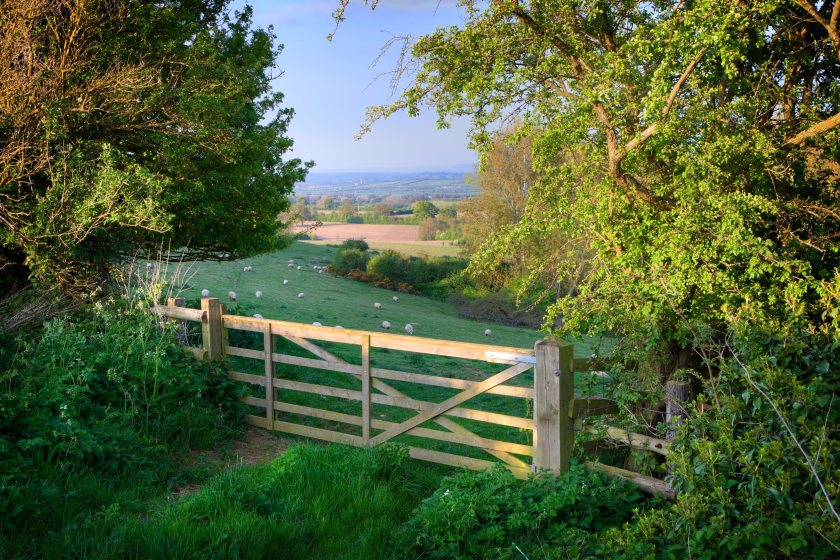'People won't survive’: Inheritance tax reforms spark suicide fears in farming

A rural finance expert has issued a stark warning over Labour's planned inheritance tax (IHT) reforms, saying the changes could lead to a wave of farm sales—and even suicides—among ageing farmers early next year.
Linda Lord, a partner at Streets Chartered Accountants and a specialist in agricultural finance, says the Treasury is failing to grasp the full consequences of the April 2026 changes to agricultural property relief (APR) and their likely effect on farming families.
“There’s a lot of farmland for sale now. That wasn’t the case before, and farmers are worried,” said Lord, who is also married to a farmer.
“As a tax adviser working closely with farming families, I am seeing the real-time fallout of policy changes many still don’t fully understand.”
The government announced in October that APR would be replaced from April 2026 with a new system under which qualifying agricultural assets will attract a 20% IHT rate—but only on amounts exceeding £1 million. Families will have up to ten years to settle the bill.
But Lord says the policy, designed to curb avoidance by wealthy landowners, is out of touch with the real economics of farming.
“If you’ve got £1 million in tax to pay, even over 10 years, who has £100,000 a year to hand over? Certainly, farmers don’t get the return on capital to fund that from income so it would require the sale of assets,” she said.
“The government doesn’t understand. They’re just not listening. People hear ‘a million pounds’ and think farmers are wealthy. They’re not.”
Lord pointed to the cost of equipment—such as £750,000 for a combine harvester—as just one example of why balance sheets often mask the fragility of farming finances. She fears many families won’t survive the hit.
“Officials say, ‘It’ll only hit a few people.’ But I can tell you, it will hit practically all of my clients if they die after 5 April. I’ve got lots in their 80s. They’re not all going to survive long enough to see a potential policy reversal under the next government. No chance.”
In one recent case, she says, the death of a client before the April deadline saved the family between £4 million and £5 million in tax. But such relief may not be available to others.
“I genuinely think there’ll be suicides in January and February, from farmers worried about putting their family in debt. In the farming community, everyone is talking about it.”
Critics of the policy warn that younger generations will be burdened with massive debts merely to inherit land that has often been farmed for generations.
Machinery and infrastructure costs remain high, while income from food production has been volatile—particularly following a string of poor weather years.
“Tax policy is being imposed on farms that are operating at a loss, without any practical plan for how families are expected to pay the bill,” Lord said.
“I just did a set of accounts last week—the farm made a £530,000 loss because of the weather. Crops were flooded and they couldn’t get on the land. No one’s taking that into account.”
With borrowing unaffordable for many farmers, and land sales often the only viable option, some are now turning to solar or non-agricultural developments to survive.
“People will walk away. They’ll get disillusioned and leave. There are loads of solar farm applications. You can’t blame them.”
Though there are some mitigation options—such as setting up trusts, passing assets between spouses, or gifting land to children—these come with their own risks, complexities, and tax implications.
“Not everyone wants to give a million pounds’ worth of land to their spouse. And divorce is its own kind of tax—often worse than inheritance tax,” Lord added.
“My husband and his brother are in their late 50s. Neither wants to take on a £1 million loan at this stage in life to pay their father’s tax bill. That leaves land sales as the only option.”
Public figures such as Jeremy Clarkson have spoken out against the reform, with Clarkson even joining London protests earlier this year.
“Ironically, it’s people like him—those who moved into farming for tax reasons—that the government was targeting. Still, he’s made it clear he’s fighting for families who’ve farmed for generations.”
The proposed reforms were also raised during a joint press conference in Scotland this week between Prime Minister Keir Starmer and US President Donald Trump, with both leaders professing their support for farmers.
But Linda Lord remains deeply concerned: “This change does not simply affect policy, it affects people. Farming families. Real businesses. Real legacies.
"If nothing changes? The farms won’t survive. The people won’t survive. And neither will the food security this country depends on.”








